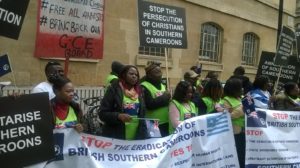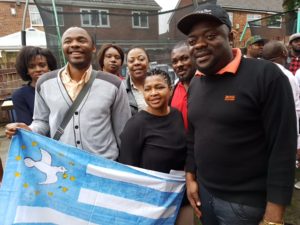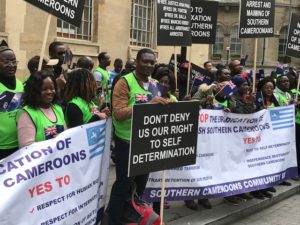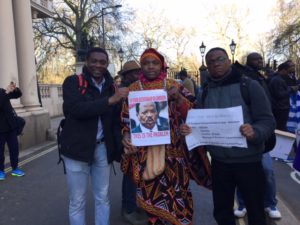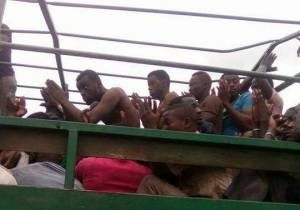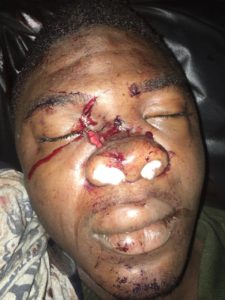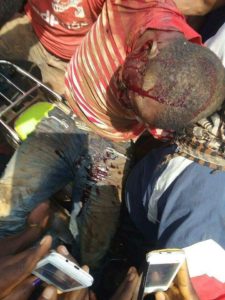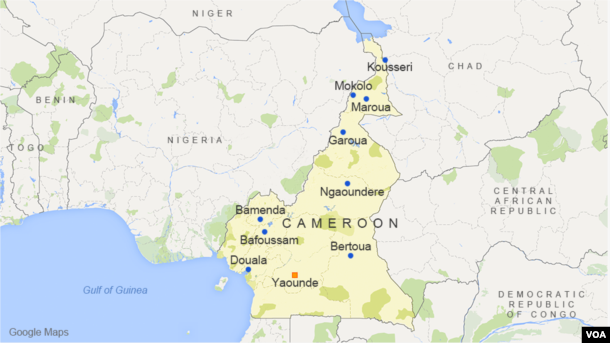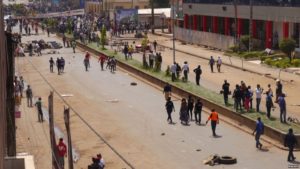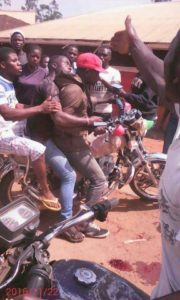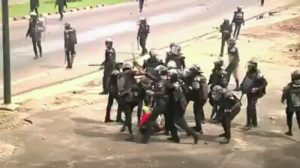Did the Commonwealth Fail in Cameroon?
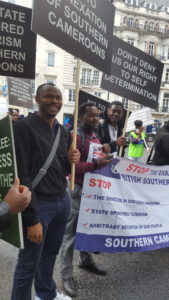
AT A PROTEST AT THE COMMON WEALTH OFFICE IN LONDON 27 JUL 2017
For those who may not know Commonwealth is a voluntary association of “52 independent sovereign countries” with the noble view of promoting democracy, peace, and development of member state. In fact, one of the condition to be member is to demonstrate commitment to: democracy and democratic processes, including free and fair elections and representative legislatures; the rule of law and independence of the judiciary; good governance, including a well-trained public service and transparent public accounts; and protection of human rights, freedom of expression, and equality of opportunity. One of the implicit condition to be a member is to speak English. It should be noticed that Mozambique becomes the first member with no colonial links to Britain. Base on all this we will try to take a look at the Cameroon membership; but before that let take a look at some historical fact. La Republic Du Cameroun which is the current official name of Cameroon had his independence on 1 January 1960 from France, sometime later on the 1st October 1961 the British Southern Cameroon had is “Independence By join in “La Republic Du Cameroun, a new form of independence created by the British Government at the time. Last time we were at the house of Common a fellow comrade asked an MP what is “independence by join in” and he was incapable of giving us an answer, let not get lost in this now. So British Southern Cameroon Join La Republic Du Cameroun on Ballot Paper and they Became one federal state with 2 officials language inherited from their formal tutor country (FRANCE and UNITED KINGDOM). Cameroon because of the Southern Cameroon becomes a member of the Commonwealth in 1995. In November 2016 Biya’s regime in Cameroon has once again shown it population how brutal, barbaric and inhuman they can be. The problem is nowadays it is difficult to hide such behaviors as more and more people get access to the internet and share images and video of what happened; as result, Biya’s regime had suspended the internet in Southern Cameroon for almost three months in order stop people sharing the truth of the reality they living in daily basis. Since the children in Southern Cameroon had not attended classes, economic is falling, even more, faster than before as the regime in the past has close down many industry and institution and relocate the most prolific one in French Cameroon. Since lawyer and teacher decide to say enough is enough in November 2016, Biya’s regime has silence or imprison those who spoke publicly about the issue, those who are not in prison are all in exile. In order to inflict more fear in population the even arrest one head judge in the name of JUSTICE AYAH PAUL without reason and by that breaking their own procedure and law just because he is from Southern Cameroon. Today MR AYAH PAUL don’t know when he will appear in form of another judge as there is no charge against him. Worst the regime has arrested roman catholic priest for not intervening to ask parents to send their children to school and are claiming the sum of 150 billion CFA francs in damages. Now that the world is looking with close eye what is happening, most trials are indefinitely adjourned to a different date and like that keeping those in prison indefinitely. Those arrested are charged with treason which is a death sentence if found guilty and according to the Cameroon penal code those outside the country who speak out about this will be charged with the same crime whit mean many of us cannot get back for saying or supporting publicly was is right. Amnesty International report 2016/2017 about Cameroun speak by himself. The list is much bigger than that so here are our questions. What those it takes to the Commonwealth to take a decision against one of his member? Which principle of the Commonwealth did Cameroon respect? Because base on what we read we can easily say very few if none Which Commonwealth principle is more important than other? On the 15th March 2017, the Secretary-General of the Commonwealth Patricia Scotland QC had tweeted an image of her and the Minister Delegate in the ministry of external relations in charge of Commonwealth Affairs, saying Biya’s regime was doing all possible to address concerns about human rights abuses in Cameroon. Four months now that that happens we will like to ask the Commonwealth’ Secretary-General if she had any update on the situation; because so far all the so call protestor (traitor of the nation) are all in exile or in jail waiting for a trial which may never happen as it is always adjourned. What does more Biya’s regime need to do to Southern Cameroon population in order to the Commonwealth to firmly react and show their interest in British Cameroon population?
By GUTENBERG N MBAKOP SCNC ACTIVIST UK


